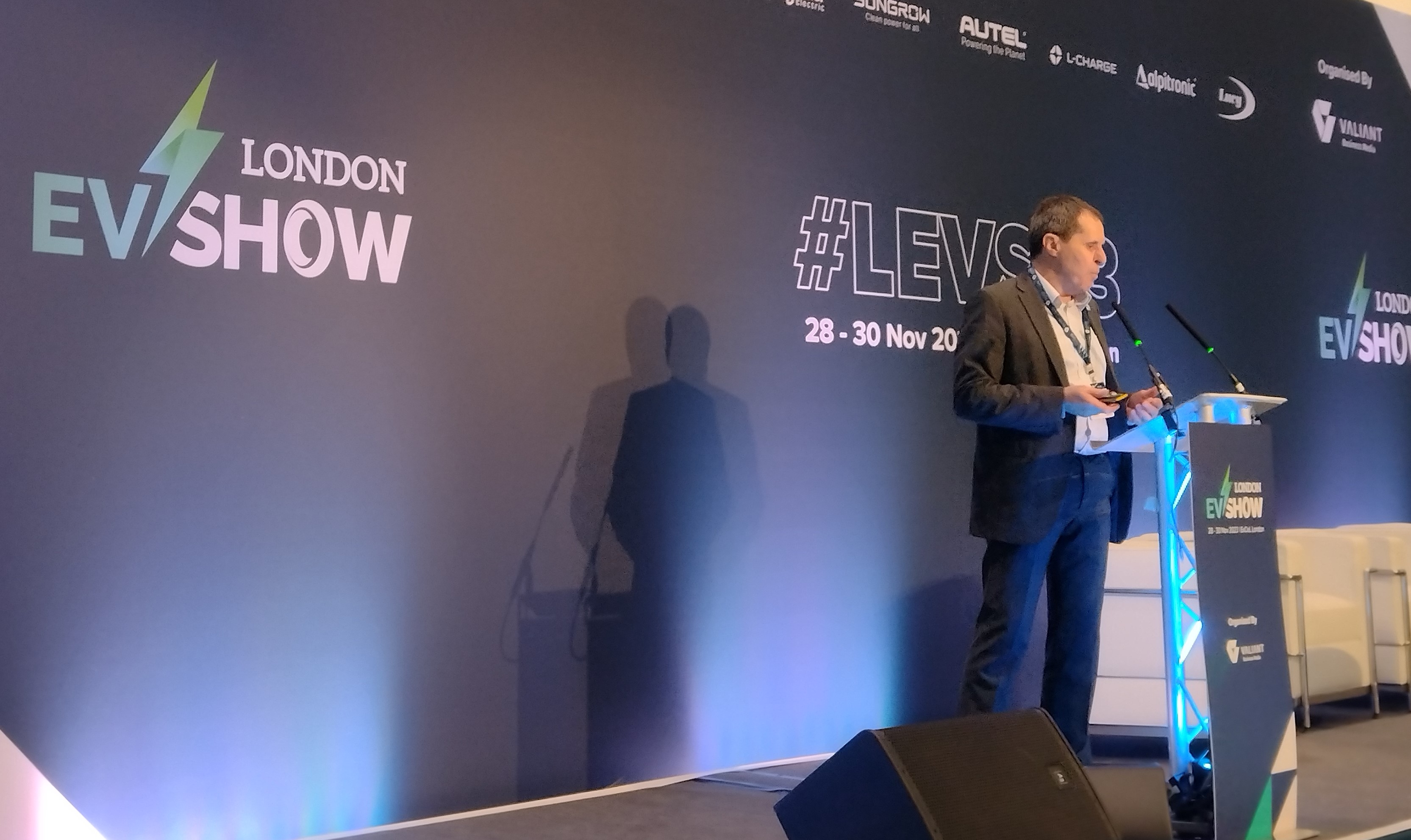
This week’s EV Show in London saw speakers and exhibitors concur on calls for stronger infrastructure around electric vehicles (EVs) to spark sustained growth in the market and pave the way for an expansion of UK exports in the sector.
Infrastructure
An early keynote from Norwegian minister for transport Jon-Ivar Nygård emphasised how government support had served as a launchpad for his country’s strong EV market.
He highlighted the “political will” in Norway to boost the numbers of EV cars on roads, which has enabled the world’s fastest transition to zero-carbon road transport.
More than 80% of new passenger cars sold in Norway are fully battery electric, while over 20% of the total existing fleet is electric.
Charging forward
One exhibitor who highlighted the need for government support in the UK, particularly in providing information, was Suren Raymond. Raymond works in business development for ChargeNet UK, a subsidiary of EV charger manufacturer ChargeNet International.
ChargeNet currently manufactures its products in Sri Lanka, exporting to India, Georgia and Kenya, but is looking to enter the UK market through consumers, councils and companies.
It’s also considering setting up manufacturing in the UK in the long term, Raymond explained, who added that the company is focused on gathering information about the UK, putting particular emphasis on regulation.
“The regulatory environment is constantly evolving; there were even some new regulations released last week. We look at the gov.uk website for the import regulations and standards we’ve got to meet, but it is a minefield.
“There isn’t a lot of clear-cut information. It’s a new, evolving industry. People are still figuring out how to make it easy for consumers, and we’re trying to catch up with that.”
The UK remains a less challenging environment than some markets, however, due to its comparatively temperate weather, Raymond said, meaning the physical standards for charging products are not as demanding.
He called for clearer and better-presented information on regulations and standards for importers to refer to.
Expanding access
Charlotte Patch, head of EV strategy at Ofgem, also spoke about the role of regulators in helping to build the infrastructure for a thriving EV market.
Early adopters have already taken up EVs, she said, but beyond those with the space and money for an electric car and charging station, there is a need to give a “broader demographic” access to EVs.
The costs of the net zero transition “must fall fairly”, Patch added. Making charging solutions available for those in high-density housing and finding solutions to the problem of rapid charging during long journeys were essential to speed up adoption.
Patch's presentation was followed by others by a series of speakers on the global transition to net zero, including Jonathan Murray of Zemo Partnership.
Manufacturing limitations
A broader picture of global EV supply chains came from Altran Magnetics’ Adam Jaber, the company’s vice president of operations and sales. Also in attendance as an exhibitor, Altran is a global supplier of components for EVs.
Altran’s main markets are North America, China and Europe, Jaber explained, where he drew attention to those countries’ move away from international trade towards manufacturing “in China for China, in North America for North America”, as a result of geopolitical tensions.
“Governments are trying to push this, but it doesn’t always make the most economic sense. Unless it’s really a requirement, we’ve done it on a case-by-case basis.
“It’s made it a bit more expensive to operate – and by a bit I mean a lot.”
He said that Altran are trying to move production out of China, but echoed other exhibitors by saying that “the alternatives aren’t there in terms of infrastructure and the regulatory environment”. Suppliers earlier in the supply chain, Jaber explained, are often not there in markets like Europe.
On the UK as a place to do business, he said:
“It’s less appealing than it used to be, exclusively because of Brexit. We had been considering setting up warehousing and engineering support here to export to the EU – that’s where things are really being physically made.
“In terms of manufacturing, there’s not a lot here: it’s Germany, Spain, Italy.”
He praised the UK’s regulatory environment and the ease of working in the country, but said it was no longer likely the company would establish a physical presence there.



